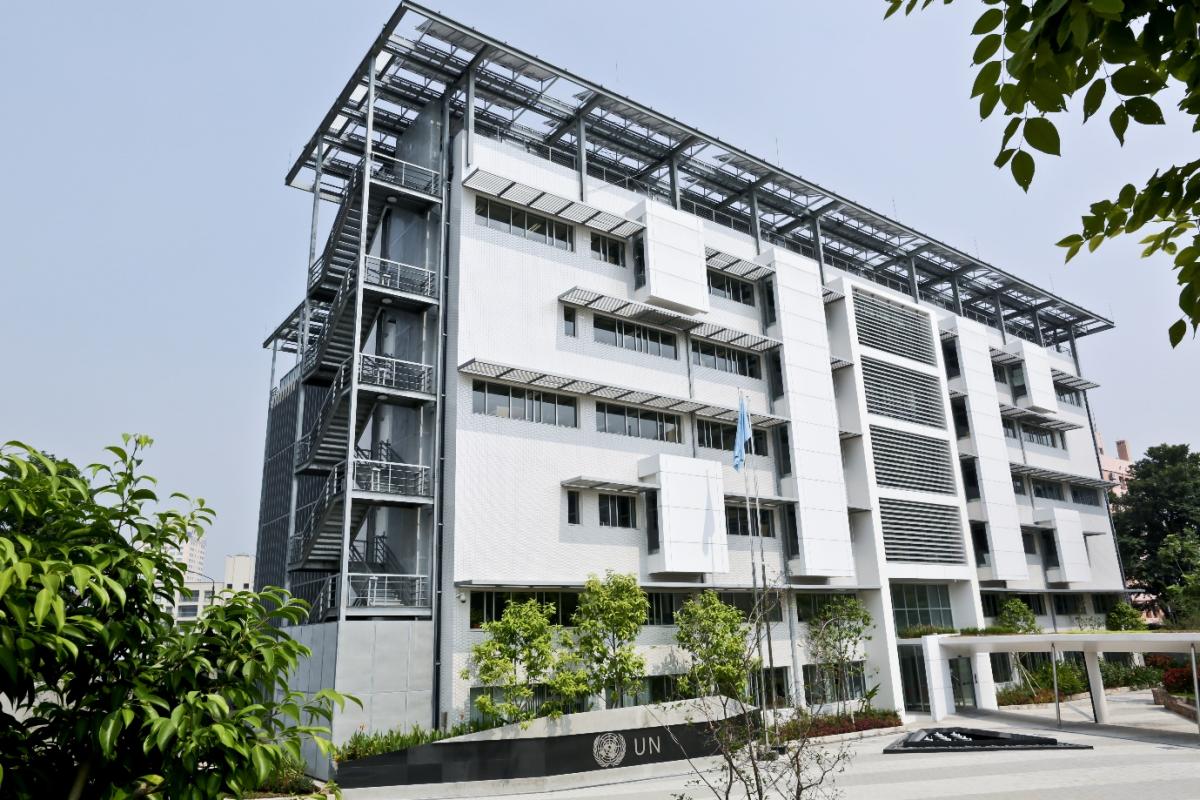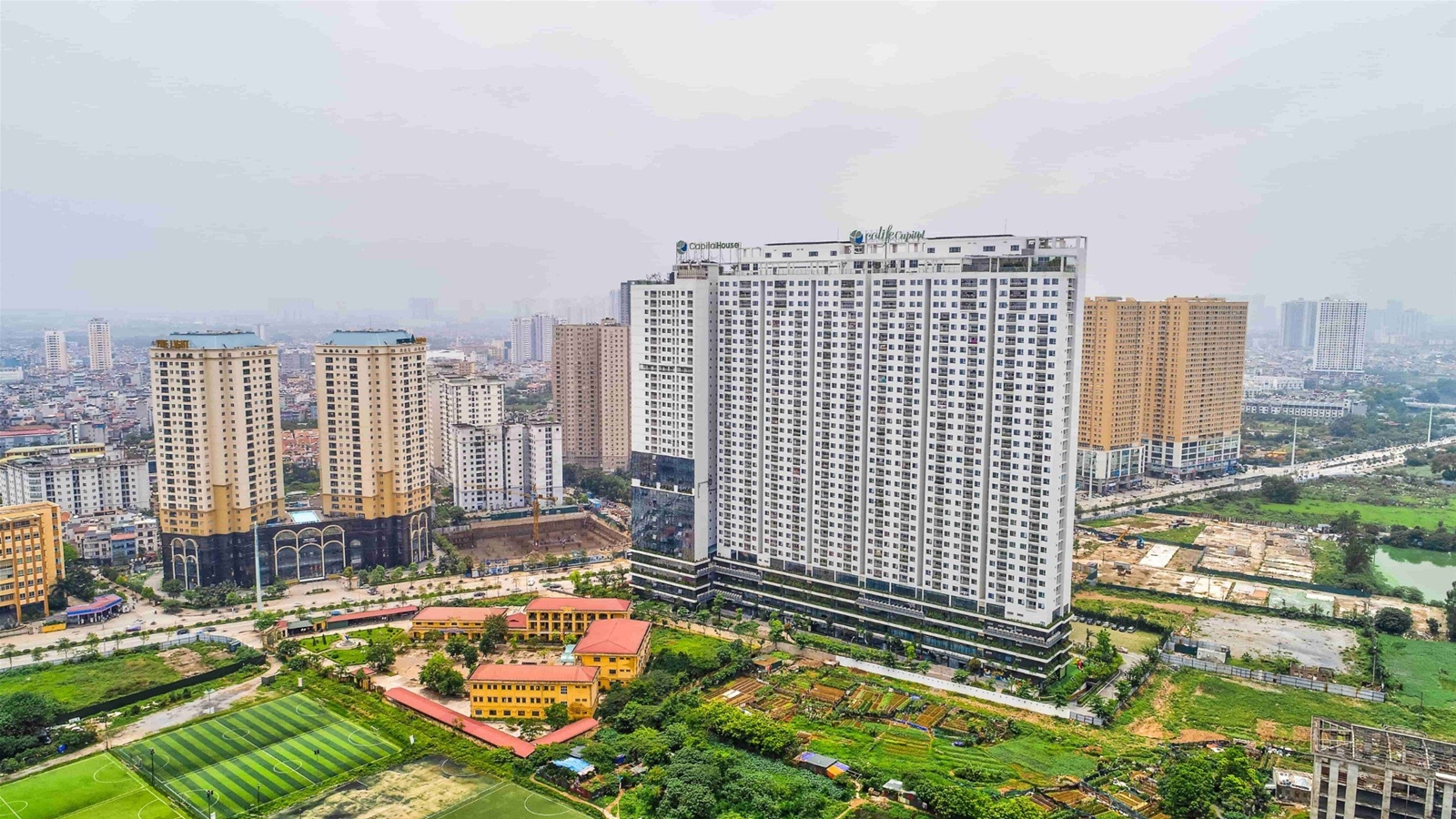Reatimes had an interview with Mr. Tim Middleton, Technical Manager at Vilandco, a Green building Design and Consulting company, on the recent issue of pollution and water contamination in Vietnam.
Reatimes: How do you compare the water quality in developing countries like Vietnam, especially the standards in LOTUS and other green certificates, with the quality in developed countries, where people can drink straight from the tap?
Tim Middleton: Being able to drink water from the tap, when I go home, is one thing that I look forward to, and one thing that I miss in Vietnam. The main difference between LOTUS and some international standards is not really complicated. LOTUS has credit, a criteria, for providing filtration of drinking water in almost any building type.
Whereas, quite simply back in Australia where I am from at least, there would not be that criteria because it's not necessary to filter the water to drink it. So the criteria just doesn't exist. Perhaps for some projects like a hospital, maybe a school or a laboratory that has special filtration standards that need to be met, they may need additional filtration, but in general, in our houses and offices, we don't need filtration.
Can people drink water straight from the tap in buildings that possess a LOTUS certificate?
No, if you live or work in a LOTUS-certified building, please don't think you can drink from the taps necessarily, because maybe the project didn't get that point or credit.
LOTUS itself, just take, for example, the new construction tool, there's a hundred points that are available. It's not a hundred different strategies, but there's a lot of different ways you can get those points. Water filtration is just one of them. In fact, there's only one point awarded for water filtration.
Actually the requirement is that there are drinking taps available. It doesn't necessarily mean that a hand-washing basin in the toilet is drinking water. It just means that on every floor or every main area there needs to be access to a drinking tap. When it comes to water, it's best to follow signs in the building and not assume anything.
In the bigger picture of LOTUS, you could say it's a small issue but when compared to other green building rating tools, the fact that we have a point in LOTUS for drinking water, I think it's saying something about the situation here in Vietnam.

For LOTUS, what is the minimum requirements for water?
There are multiple things to consider that are kind of more technical in terms of water filtration. LOTUS will not award points for projects that meet basic filtration. It has to satisfy proper drinking standards.
Basically, LOTUS will require that there are sediment filters and reverse osmosis. [LOTUS clients] have to have filters that can catch or remove certain unwanted chemicals.
LOTUS refers to local Vietnamese standards for water filtration, it does not set the technical parameters itself. But if the filtration system does not involve sediment filter, reverse osmosis, active carbon filter or ultra filtration, which is what Capital House is using, then it's not likely to be able to pass LOTUS.
Water contamination and air pollution are unavoidable issues in developing countries like Vietnam, as we are building a lot of projects and constructions. Nevertheless, those can be seen as an alarm for the government, for project developers and for the citizens to learn how to react. What kind of preventative measures do you recommend preparing against those incidents? Are they included in LOTUS?
LOTUS only deals with buildings, and how people use water in the buildings. The issue has come from the pollution of a natural water resource. The way that these are related is that water is brought to buildings for the residents to use them. However, our day-to-day water usage is responsible for pollution of waterways to some degree. As you can see in Vietnam, lakes, rivers and underground water systems are not pollution-free. They're not contaminant-free. Unfortunately in Vietnam, the polluted state has become normal. People have accepted that as normal and decided to live with it.
When things like this pollution problem arises with oil contaminating the water supply, people then realize that we need to look after our water resources and the investors who are developing buildings need to follow the regulations in terms of wastewater treatment and management before letting it back out into the environment. That's highly important. It's also dealt with in LOTUS and it's actually part of the law in Vietnam and people need take it seriously.
As we were talking today, it just made me think of my home in Australia. In Australia, we have a problem with water scarcity. We don't have enough water so the problem is quite different to Vietnam. Here, water is abundant so maybe people think that there will always be water. They take it for granted, that's for sure.
My house in Australia is at the bottom of a hill and on top of my hill there is a water reservoir, a huge tank of water that supplies for part of my city. It's a high security area and it's a well protected area. The water is covered and very precious. The security is like a prison. That's how important it is for us to protect our water because we know that we can easily run out in Australia.
Issues like this in Vietnam, where hundreds of thousands of people have been affected, hopefully it will make Vietnamese and us foreigners living here realize that we need to treat our waterways with the same importance and consider them as precious, not just for the environment, but for our own sake, because it's not just the ecology that suffers, but it's us that suffers.
You could think of this problem with the oil in the water as just an inconvenience. It's possible that other contamination problems in the future could affect people's health more seriously. It could even cause deaths. The consequences could be much larger. This is like a warning for Vietnam. We really need to look at water differently.

Talking about buildings, it's easier for new constructions to implement new technology and air or water filtration. What about already existing projects? How do buildings in operations tackle the contamination problems?
It's very difficult to act quickly on that. However, in terms of preparing for future contamination problems, it is possible. Of course, it's more expensive to install something in an existing building, but not impossible, as long as you have enough space. If you have some space and some money, it's possible to install filtration systems even on an individual apartment unit level. If we talk about a whole building, the expense is higher, but it will be more efficient.
The best thing would be to deal with the source of the problem first. Assuming that you can't do that, then the next thing is to protect people. We have to take our own safety first. If we can not rely on the developers or the government and wait for them to act, then we need to consider buying a water filtration system to apply to our houses. However, we shouldn’t stop there either and think that 'okay, I'm safe now.' We should continue to be aware and addressing the root of the problem and not just protect ourselves.
We can all agree that air and water filtrations are highly crucial for Vietnam at the moment. How do you evaluate the feasibility of applying those technologies against the average investment capital?
What Mr. Trinh Tung Bach, head of Capital House Group’s research and development division, raised with the investment for the ultra filtration system for Ecolife Capitol was very interesting for me. He, as an investor, said that they spent two or three billion on the system for a thousand apartments. And he said that's not that much. Maybe at the time, the investment was a big investment. But now buyers of apartments and even people who are renting will be very concerned about the facilities in an apartment or a house that can protect the occupants from such contaminations. When you think of it that way, the feasibility or the cost-benefit is very good. At the moment, I think they have made a wise investment.
Thank you for the conversation!
LOTUS is a set of voluntary green building rating systems developed by Vietnam Green Building Council (VGBC), a project of the non-profit Green Cities Fund, based in California, USA. In Vietnam, VGBC has registered the Vietnam Green Building Social Enterprise Co. Ltd. to manage the LOTUS assessment and training programs.
LOTUS Certification consists of four levels of certification – Certified, Silver, Gold and Platinum – based on the number of points a project is awarded. There is a varying number of points available for each rating system (including bonus points within the Innovation category). To earn LOTUS Certification, a project must satisfy all prerequisites and achieve a minimum of 40% of the total amount of points (exclusive of bonus points).
The Viet Land Investment Consulting and Construction Joint-Stock Company (VILANDCO JSC) was established in 2007, initially with architectural design consulting, interiors and construction consulting works as the main areas of activity. The company aims to ensure harmony between humans and the natural environment in any project they undertake. VILANDCO is currently a champion member of the Viet Nam Green Building Council (VGBC), a non-governmental organisation established with the objective of promoting the development of energy efficient and environmentally friendly buildings in Vietnam.


















